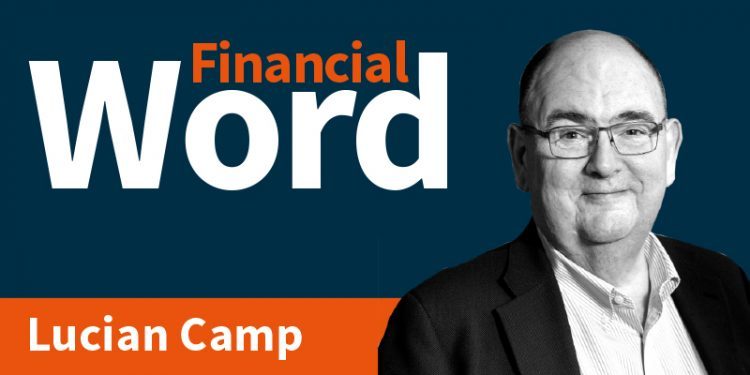For all the hype about digital marketing, it’s no substitute, argues Lucian Camp, for spending that hard-earned budget on advertising.
Think about some of the financial services brands that have launched over the last 25 years or so. The older newcomers that come to my mind include the likes of Direct Line, Churchill and First Direct; among the middle-aged I think of Egg (now sadly deceased), MORE TH>N and the price comparison sites; the newer newcomers include Zopa, Nutmeg, MoneyVista and rplan.
Notice a difference (apart from age) between the first two groups and the third? All the brands in the first two were supported with a ton of television advertising either at launch or soon afterwards, and became famous very quickly. The brands in the third group were launched with no television advertising, and all remain almost unknown.
This isn’t – or it isn’t necessarily – a point about success. Egg was well-known but I believe never made money. Zopa isn’t well-known, but I believe does pretty well in its niche. But, that said, I am sure that becoming well-known among your target market soon after launch does give a new brand a flying start. And – I apologise if this sounds terribly old-fashioned these days – it’s still true today that by far the best and most reliable way to become well-known quickly is to spend a lot of money on television advertising.
The reason why this sounds old-fashioned is that in recent years, a comforting myth to the contrary has grown up. This myth says that brands can become remarkably well-known to consumers – and, more than that, well-explored and well-understood – by means of digital marketing and other communications activities that are more or less cost-free. I’ve contributed to this myth myself, reassuring under-resourced clients on occasion that hey, if Facebook can achieve 90-odd per cent awareness and generate a billion active users without spending a penny on brand-building or response-generating communications, surely we must be able to hit our first-year target of a mere 50,000 customers or whatever in the same sort of way.
But the more you look at the evidence, the more this just doesn’t seem to be true, or not in financial services at any rate. For all their vigorous blogging, tweeting and app-launching, several of the more recently-launched FS brands just don’t seem to be achieving any kind of traction at all. (The best test is often to check out their chatrooms and discussion boards – more often than not, months or even a year post-launch, you’ll see little or nothing there except for a few tumbleweeds blowing across the empty spaces.)
I’ve never tried raising finance for a new FS business, but I’m sure it’s horribly difficult. And if your proposal has to add in a multi-million pound advertising budget to the total required, no doubt ‘horribly difficult’ is very likely to become ‘totally impossible’. But I do increasingly think that we’re kidding ourselves if we think we can succeed without it, and it’s probably better not to launch at all than to launch without the money to make yourself known.
It’s different, of course, if you have a small, niche target market which you can reach at a nice low cost. And it’s different again if the venture has some kind of physical real-world footprint – shops, branches, advisers, salespeople – doing much the same job as the advertising, but in a way that’s intrinsic to the business rather than additional to it. (Even then, winding in a big fat communications effort won’t hurt – just consider, in a slightly disapproving and pursed-lip kind of way, how quickly Wonga has established itself as a leader in its field.)
Apart from the horrendous difficulty of raising the money, of course, the other potentially even-more-horrendous difficulty is making the business plan work with a new, extra cost line which may well be larger than all the other operational costs put together, at least in the early years. But, again, my answer after much reflection is that while it may be a cost you can’t live with, it may also be a cost you can’t live without. If the numbers don’t make sense with an adequately large advertising budget, then I fear that the numbers may very likely not make sense at all.

